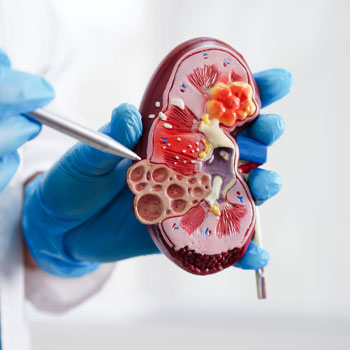What is Renal Transplant Surgery?
Renal transplant surgery, commonly known as kidney transplant surgery, is a life-saving procedure in which a diseased or non-functioning kidney is replaced with a healthy kidney from a donor. This treatment is often recommended for patients suffering from end-stage renal disease (ESRD) or chronic kidney failure when other treatments like dialysis are no longer effective.
Understanding the Need for Kidney Transplantation
The kidneys play a crucial role in filtering waste products, toxins, and excess fluids from the blood. When they lose this ability, the accumulation of waste in the body leads to serious complications. Some common causes of kidney failure include:
- Diabetes mellitus
- Chronic hypertension (high blood pressure)
- Polycystic kidney disease
- Glomerulonephritis
- Repeated urinary tract infections
- Autoimmune diseases like lupus
In such cases, renal transplant surgery becomes a vital option to restore kidney function and improve the quality of life.

Types of Kidney Transplants
There are two main types of kidney transplant surgeries:
- Living Donor Transplant: A healthy kidney is donated by a living person, usually a family member or close relative. This type often results in better long-term outcomes due to reduced waiting time and better organ compatibility.
- Deceased Donor Transplant: The kidney is obtained from a person who has recently passed away and has pledged to donate organs. These transplants are conducted based on strict allocation systems and medical compatibility.
The Renal Transplant Procedure
Dr. Pavan Ganesh Yalavarthi, a renowned expert in kidney transplant surgery in Gudivada, explains the renal transplant procedure as a well-coordinated, step-by-step surgical approach:
- Evaluation: Both the recipient and the donor undergo thorough medical testing to assess compatibility, organ function, and overall health.
- Preparation: On the day of surgery, the patient is prepared under general anesthesia. The procedure typically takes 3–4 hours.
- Transplantation: The donor kidney is placed in the lower abdomen. The surgeon connects the renal artery and vein to the recipient’s blood vessels and links the ureter to the bladder.
- Recovery: Patients are monitored in a recovery room and then in a transplant care unit for signs of kidney function and potential complications.
Post-Surgery Recovery and Care
After a kidney transplant, patients are closely monitored and given medications to prevent organ rejection. These immunosuppressive drugs must be taken for life to ensure the body does not attack the new organ. Regular follow-ups, blood tests, and healthy lifestyle changes are essential for long-term success.
Common post-surgical recommendations include:
- Avoiding exposure to infections
- Eating a balanced, low-salt diet
- Staying hydrated
- Taking medications on time
- Routine monitoring of kidney function and drug levels
Benefits of Renal Transplant Surgery
Compared to long-term dialysis, renal transplant surgery offers significant benefits:
- Improved quality of life
- Increased energy and daily activity levels
- Better survival rates
- Fewer dietary restrictions
- Enhanced long-term health outcomes
Why Choose Dr. Pavan Ganesh Yalavarthi for Kidney Transplant Surgery in Gudivada?
When it comes to kidney transplant surgery in Gudivada, Dr. Pavan Ganesh Yalavarthi stands out as a trusted name in the field of urology and renal care. With extensive experience in handling complex kidney cases, Dr. Yalavarthi offers:
- Expert pre-transplant evaluation and guidance
- Advanced surgical techniques
- Comprehensive post-operative care
- Patient-centric counseling and support
His compassionate approach and commitment to medical excellence make him one of the leading kidney transplant surgeons in the region.
Who Can Be a Kidney Donor?
A donor can be anyone who is healthy and willing to donate. Compatibility tests are conducted to ensure the best match and to reduce the chances of organ rejection. Ideal donors include:
- Close family members like parents, siblings, or children
- Spouses or extended relatives
- Voluntary unrelated donors (in rare, legal circumstances)
- Brain-dead deceased individuals who pledged organ donation
Renal transplant surgery is a life-transforming solution for patients with chronic kidney failure. It restores normal kidney function and allows individuals to live healthier and more productive lives. If you or a loved one are exploring kidney transplant surgery in Gudivada, consult Dr. Pavan Ganesh Yalavarthi for expert evaluation and personalized care.
Your journey to better kidney health begins with informed choices and the right medical guidance. Don’t wait—regain control of your life with the trusted expertise of a leading urologist in Gudivada.
